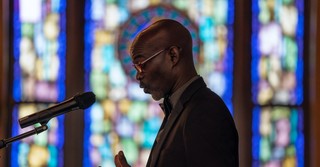6 Practical Ways We Can Strengthen the Church
Share

A quick internet search for “church planting” will result in a myriad of articles, from research on current statistics and advice from church planters to a whole host of organizations with extensive structures and programs in place to establish and grow new churches. I wonder, though, if it’s meant to be as complicated as it would seem by this mass of information.
The biblical view of church planting seems a lot simpler as I read through the book of Acts and the New Testament letters of doctrine and pastoral advice from those first apostles of Christ (Paul, Peter, James). What was their secret? From the humble beginnings of a few hundred believers, the gospel has spread all across our world, and is still as powerful now as it was more than two thousand years ago. How did those early disciples establish new churches, and what was their “strategy” to keep them strong and growing?
Paul and his co-laborers were master “church strengtheners.” What can we learn from a practical look at how they carried out the ministry of establishing and strengthening the body of Christ?
Looking at the word “strengthen” as found in the New Testament reveals a few simple principles that I believe can help all of us, as followers of Jesus, strengthen the church today. As we unpack these, we’ll discover three Greek words used in the New Testament to describe what it means to “strengthen” the church.
Keep in mind, the Church (the body of Christ) is not just your church. It includes all people who have believed the gospel of Jesus Christ, having received salvation according to the Scriptures.
Let’s broaden our perspective. How can we fulfill our biblical responsibility to strengthen our own local body, and at the same time, realize our obligation to help new and (possibly) struggling churches in need of strengthening?
Here are six simple principles to implement in our desire to be church strengtheners.
Photo credit: ©Getty Images/Rawpixel
1. Guard the Purity of the Gospel

“After there had been much debate, Peter stood up and said to them, ‘Brethren, you know that in the early days God made a choice among you, that by my mouth the Gentiles would hear the word of the gospel and believe. And God, who knows the heart, testified to them giving them the Holy Spirit, just as He also did to us; and He made no distinction between us and them, cleansing their hearts by faith. Now therefore why do you put God to the test by placing upon the neck of the disciples a yoke which neither our fathers nor we have been able to bear? But we believe that we are saved through the grace of the Lord Jesus, in the same way as they also are’” (Acts 15:7-11).
Once the gospel began to spread from the first Jewish believers to include Gentile converts, it was inevitable that controversy would arise. The mission Jesus gave to His disciples just before He ascended was to go into all the world and preach the gospel, affecting every ethnic group and nationality. Just like today, the people turning to faith in Jesus brought their baggage of opinions, traditions, and religious beliefs with them. The Jews held tightly the Old Testament laws of Moses, while the Greeks – the Gentiles – brought their sensuality and liberal lifestyles.
In Acts 15 and 16, the elders of the church addressed one such issue by unapologetically standing firm on the purity of the gospel. Peter settled the debate clearly: We believe that we are saved through the grace of the Lord Jesus. To build a strong church, we must first lay a strong foundation on the purity of the gospel, and never move away from it.
Photo credit: ©Getty Images/artisteer
2. Settle Disagreements with Truth from God’s Word

“After they had stopped speaking, James answered, saying, ‘Brethren, listen to me. Simeon has related how God first concerned Himself about taking from among the Gentiles a people for His name. With this the words of the Prophets agree, just as it is written, ‘After these things I will return, and I will rebuild the tabernacle of David which has fallen, and I will rebuild its ruins, and I will restore it, so that the rest of mankind may seek the Lord, and all the Gentiles who are called by My name,’ says the Lord, who makes these things known from long ago. Therefore it is my judgment that we do not trouble those who are turning to God from among the Gentiles.’ … So when they were sent away, they went down to Antioch; and having gathered the congregation together, they delivered the letter. When they had read it, they rejoiced because of its encouragement” (Acts 15:13-19).
In this same passage, after Peter reminds the room of the simplicity and purity of the gospel, James underscores his point by taking them to the Old Testament Scriptures, where God had long ago promised that the Gentiles would be included in His kingdom. A strong church must be built on “Sola scriptura,” the Biblical doctrine that Scripture alone is our source for the Christian faith; it is complete, authoritative, and true. Churches must be founded on the gospel and build their doctrine on Scripture alone as the final authority.
Photo credit: ©Sparrowstock
3. Encourage One Another to Persevere in the Tribulations of Life

“After they [Paul and Barnabas] had preached the gospel to that city and had made many disciples, they returned to Lystra and to Iconium and to Antioch, strengthening the souls of the disciples, encouraging them to continue in the faith, and saying, ‘Through many tribulations we must enter the kingdom of God’” (Acts 14:21-22, emphasis added).
Here, the word “strengthen” is from the Greek word epistērizō, meaning to confirm, to establish besides, strengthen more, to render more firm. The literal translation is “to make to lean upon, strengthen" (epi, "upon," sterix, "a prop, support”).
As Paul established new churches, he made sure to remind them that the life of a Christ-follower would not be easy. As the excitement of a new church plant wore off, the people would enter the stage of persevering in the spiritual warfare that would inevitably come. The enemy, Satan, hates the gospel, and uses all his strategies to discourage believers. Paul realized the importance of strengthening the lagging faith of brothers and sisters, especially when trials and tribulations threatened to cause them to quit.
The same is necessary today. Cultural opposition, financial pressures, bi-vocational obligations, and more will come against new and existing churches. We can strengthen others by helping them persevere through hardships.
Photo credit: ©Getty Images/evgenyatamanenko
4. Take Time to Tell One Another the Stories of How God Is Working

“From there they sailed to Antioch, from which they had been commended to the grace of God for the work that they had accomplished. When they arrived and gathered the church together, they began to report all things that God had done with them and how He had opened a door of faith to the Gentiles. And they spent a long time with the disciples” (Acts 14:26-28).
In this passage, Paul and Barnabas had literally been run out of town. Paul was beaten, stoned, dragged out of the city, and left for dead, but he got up on his feet and went right back into the spiritual battle to which God had called him.
Afterwards, though, they came away from the battle and gathered with the brothers and sisters for “a long time.” They refreshed themselves and the church by taking time to tell the stories of how God was working.
“Anxiety in a man’s heart weighs it down, but a good word makes it glad” (Proverbs 12:25). Spending time recounting the goodness and power of God strengthens the body.
Photo credit: ©Getty Images/~UserGI15667539
5. Preach and Teach the Word to One Another

“Judas and Silas, also being prophets themselves, encouraged and strengthened [epistērizō] the brethren with a lengthy message. … But Paul and Barnabas stayed in Antioch, teaching and preaching with many others also, the word of the Lord” (Acts 15:32, 35, emphasis added).
“Now a Jew named Apollos, an Alexandrian by birth, an eloquent man, came to Ephesus; and he was mighty in the Scriptures. This man had been instructed in the way of the Lord; and being fervent in spirit, he was speaking and teaching accurately the things concerning Jesus, being acquainted only with the baptism of John; and he began to speak out boldly in the synagogue. But when Priscilla and Aquila heard him, they took him aside and explained to him the way of God more accurately” (Acts 18:24-26).
In his letter to the scattered believers, Peter reminds them to “grow in the grace and knowledge” of the Lord so that they would not be carried away by error or fall from steadfastness of faith (2 Peter 3:17-18). The elders and apostles of the early church made it a priority to strengthen (come alongside and establish and render firm) the church’s knowledge of the words of Jesus and the fulfillment of the Old Testament Scriptures.
Today, this same priority – a commitment to teach and preach the Word of God – will strengthen our churches. We build up one another’s faith, not by our own words or opinions, but by digging into the treasures of God’s Word together to learn and grow.
Photo credit: ©Getty Images/Martine Severin
6. Be Willing to Go and Use Your Gifts to Strengthen Other Churches

“After some days Paul said to Barnabas, ‘Let us return and visit the brethren in every city in which we proclaimed the word of the Lord, and see how they are.’ … But Paul chose Silas and left, being committed by the brethren to the grace of the Lord. And he was traveling through Syria and Cilicia, strengthening [epistērizō] the churches” (Acts 15:36, 40-41, emphasis added).
“Now while they were passing through the cities, they were delivering the decrees which had been decided upon by the apostles and elders who were in Jerusalem, for them to observe. So the churches were being strengthened [stereoō] in the faith, and were increasing in number daily” (Acts 16:4-5, emphasis added).
Here the Greek word is stereoō which has a literal meaning “to make firm or solid,” as when the bones of a lame man were healed (Acts 3:7,16). It’s also translated as “established,” and “made stronger.”
“And having spent some time there, he [Paul] left and passed successively through the Galatian region and Phrygia, strengthening [epistērizō] all the disciples” (Acts 18:23, emphasis added).
“Therefore when we could endure it no longer, we thought it best to be left behind at Athens alone, and we sent Timothy, our brother and God’s fellow worker in the gospel of Christ, to strengthen [stērizō] and encourage you as to your faith … for now we really live, if you stand firm in the Lord” (1 Thessalonians 3:1-2, 8, emphasis added).
This word, stērizō, is a similar verb whose literal meaning is to fix or make fast, to set (to turn resolutely in a certain direction, to confirm).
All of these passages point to one important principle. As God grows our own faith and develops the spiritual gifts He has given us, He expects us to use these gifts to serve not just our own local church body, but to look for opportunities to strengthen others.
A struggling church plant might consist of a young (or new) pastor laboring alone in an area that has had little gospel presence. The field is hard and stony, and the work is difficult and discouraging. A larger, established church may have a multitude of strong and gifted believers gathered in one place, including a few individuals or couples whom God could use in other places.
So often, we gather where we are comfortable, where our needs are served, when the reality is, God could use our help at a place of greater need! Remember Paul and his vision? “Come over to Macedonia and help us!” (Acts 16:9-10).
Here's the paradox: When we commit to helping others, we inevitably find that we receive far more than we give. Let’s be willing to share what God has given to us, whether our time, our resources, our gifts, or our very lives, to strengthen the whole body for which Christ gave His life.
“For I long to see you so that I may impart some spiritual gift to you, that you may be established [stērizō], that is, that I may be encouraged together with you while among you, each of us by the other’s faith, both yours and mine” (Romans 1:11-12, emphasis added).
Related Resource: The Unique Challenges Facing Pastors and Their Mental Health
We honor those serving in the Church and acknowledge the unique challenges facing pastors, their families, and staff. Pastor Gregory Seltz has an enlightening conversation with Dr. Tim Clinton about the mental health issues that impact those we trust to lead us in our faith. Dr. Clinton discusses the dangers of neglecting pastors’ mental health needs, the mandate to invite God into all areas of our lives, and the importance of focusing on what truly matters, even when we feel pulled in many directions.
Photo credit: ©Getty Images/SeventyFour
Author Sheila Alewine is a pastor’s wife, mother, and grandmother of five. She and her husband lead Around The Corner Ministries, which serves to equip Christ-followers to share the gospel where they live, work and play. She has written seven devotionals including Just Pray: God’s Not Done With You Yet, Grace & Glory: 50 Days in the Purpose & Plan of God, and her newest one, Give Me A Faith Like That, as well as Going Around The Corner, a Bible study for small groups who desire to reach their communities for Christ. Their ministry also offers disciple-making resources like One-To-One Disciple-Making in partnership with Multiplication Ministries. Sheila has a passion for God’s Word and shares what God is teaching her on her blog, The Way of The Word. Connect with her on her blog, Facebook, and Instagram.